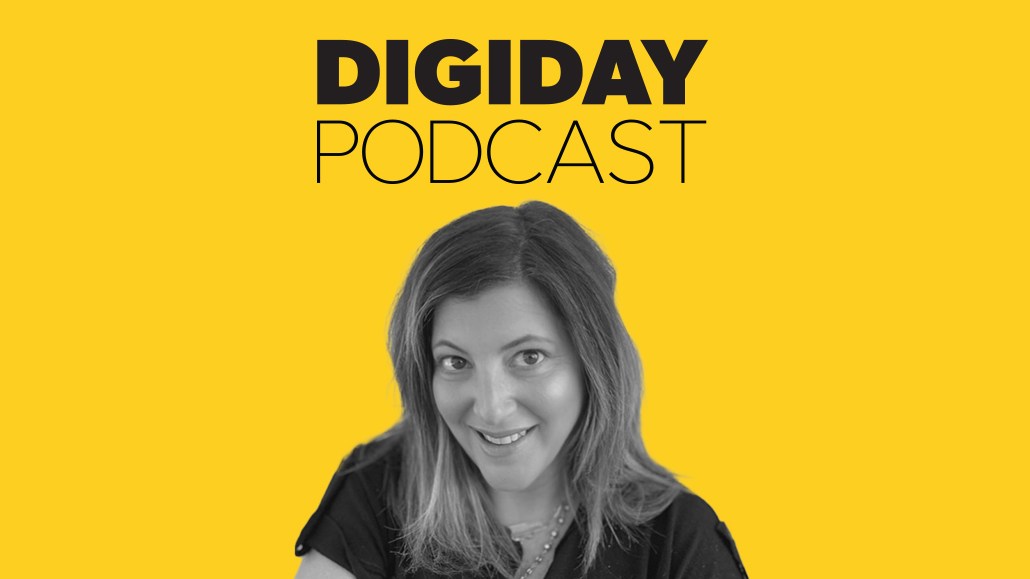Secure your place at the Digiday Media Buying Summit in Nashville, March 2-4
How Linktree vp Lara Cohen is championing for creators to get a bigger piece of the pie

Subscribe: Apple Podcasts • Spotify
The creator economy is bursting at the seams as brands tap into social media stars, both big and small, hoping to recreate word of mouth-style marketing online.
In fact, agency clients and brands invested more in influencer marketing in 2023 than they did in 2022, according to Digiday+ research. In Q1 of 2022, 69% of agency professionals said their clients spent at least a very small portion of their marketing budgets on influencers. By Q1 of 2023, that figure jumped to 76%. Goldman Sachs predicts that the creator economy could approach half of a trillion dollars by 2027.
As more money flows into the creator economy, creators are looking for two things: their fair share of that money and more sovereignty over their online presences. And Linktree, a link-in-bio tool, is positioning itself to be an intermediary, facilitating the growth, per Lara Cohen, vp of partners and business development at Linktree.
“There’s a shift happening right now and I think the financial shift has really yet to catch up directionally [with] where the market is right now, in some ways,” Cohen said on the most recent episode of the Digiday Podcast. “The real shift that we haven’t seen yet that we’re really advocating for on the front lines of Linktree is that these creators should be paid more.”
On this episode, we caught up with Cohen to talk about the growing creator economy, monetization at Linktree and what maturation looks like in this space.
Below are highlights from the conversation, which have been lightly edited and condensed for clarity.
On adapting to the current creator landscape
Right now, these marketing budgets are the last things to change. It was the transitioning from moving dollars from class TV to digital, [which] was a shift. If a company allocates 3% of their marketing budget to influencer marketing, the trend that we’re going to see in the future is that these creators are really, if not getting rid of brick and mortar (I don’t think anyone wants to get rid of brick and mortar), but [are] much more on par with brick and mortar in terms of what they’re doing. It’s not just marketing, they’re really the delivery platform for how people buy and sell. We’re doing a lot of thinking about how we can bring commerce directly into Linktree and take out that extra step for folks so they’re more likely to convert directly on your Linktree. While really, at the same time, championing for creators to get a bigger piece of the pie because they’re doing a lot of work here — more than just a 3% affiliate rate.
Linktree business opportunities in the creator space
Right now, we are a [software-as-a-service] product. Creators selling more and making more money on Linktree, the value back to us is that more people will use our pro tools and want to buy subscriptions because the analytics that they’re getting, these pro features that they’re getting are valuable to them because it helps them make smarter, more informed brand deals, and make them more valuable in the marketplace. We’re definitely thinking about, if we were to do direct sales on Linktree, what that would look like. Obviously, that model is that we take a cut of that as well. Because we would be entering the marketplace with the size and scale of 45 million creators, that sets us up in a different way where we have more leverage for the creators than any commerce marketplace that’s starting.
Sovereignty in the creator economy
Creators and these platforms have a classic frenemy relationship, where they are both reliant on each other, dependent on each other, but also really pivotal to each other’s success. But at the end of the day, there’s a power imbalance right now where the platforms are making a lot more money from the creators and the content that they bring to the platforms than the creators are making back, because they ultimately are running ads against this content and it’s what brings people to tune in to the platforms. I don’t think anyone, with the exception of maybe YouTube, has figured out a really scalable way to get creators of all size and scale paid that way.
More in Marketing

Future of Marketing Briefing: AI’s branding problem is why marketers keep it off the label
The reputational downside is clearer than the branding upside, which makes discretion the safer strategy.

While holdcos build ‘death stars of content,’ indie creative agencies take alternative routes
Indie agencies and the holding company sector were once bound together. The Super Bowl and WPP’s latest remodeling plans show they’re heading in different directions.

How Boll & Branch leverages AI for operational and creative tasks
Boll & Branch first and foremost uses AI to manage workflows across teams.








